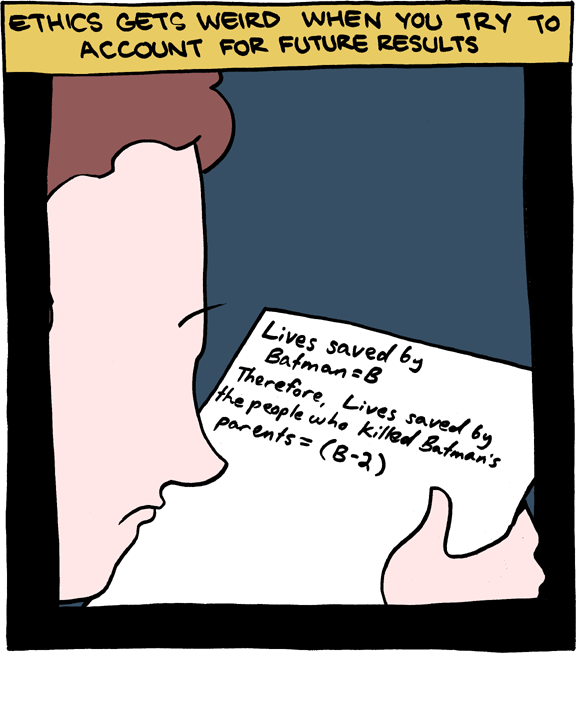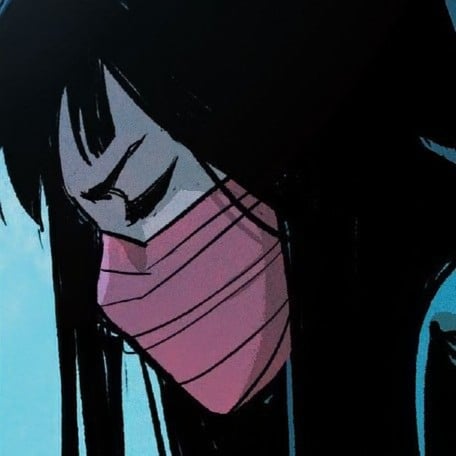What if multiple successful donations happen as a result? Does that make you a lifesaver?
Yes that makes you a killer, you killed someone. Them being an organ donor doesnt change that.
Y…yes
deleted by creator
I am NOT an organ donor.
Just wanted to let you know.
hides organ donor card
Me neither!
It makes you the killer, and the organ donor a life-saver…
I mean, you’re not really a donor until…
It’s a long posed ethics dilemma, usually based on an emergency room with a doctor doing triage on some number of patients with some varying number of serious and minor injuries.
Fast forwarding through all the discussions: yes, you would be a killer. The moral permissibility of the action doesn’t negate the nature of the action. You could potentially be a lifesaver, depending on the context of the killing and your intent.
No, it’s not always wrong to be a killer, or to sacrifice someone to save others.
Yes, it almost always is wrong though.
No, it’s not realistically possible for someone making that decision to know the caveats that might make the sacrifice justifiable.In general the practical ethical action is to prioritize the “sure thing”, and otherwise direct your efforts where they can do the most good in a situation where there’s limited time of resources to treat everyone.
The guy coming in for a physical is nearly certain to survive, so he should be told to leave and promptly ignored until he stops being healthy.
The unresponsive guy with a concave dent in the middle of his chest, not breathing, and a weak irregular pulse has pretty low odds, so you make sure his head is positioned well if he starts breathing and move on.
The person with a bubbly chest wound and wet bloody cough is probably able to be saved if you help them.Sacrificing people who would have lived just keeps those people away from the hospital, so it does more net damage and costs lives, from a strictly utilitarian perspective that ignores “bodily autonomy” and the like.
Removed by mod
Relevant SMBC:

Username checks out…
There is an Indian TV series (Amazon Prime Original), named Breathe. A father starts killing people who have been listed as organ donors, one by one, until his son gets new lungs.
That’s a wild plot, I might give it a watch!
But it’s also pretty dark if you think about it… His son’s life is worth more than all the lives of those he kills for it.
Man, better to just harvest organs at that point!
You take a life to potentially save zero, one, or many.
It would depend of the health state of the victims, the probability of success of organ(s) transplant, and many more subtle factors to consider…
How do you choose the next potential victims,
It is above all a moral question -_-…
Are those waiting for a transplant better than the futur victims ? They deserve to live more than the futur victims ? Based on what criteria ?
If the killer wants to save lives so much, why doesn’t he sacrifice himself?
Maybe you should write a book about it !
who happens to be an organ donor
The way I read it is that the killer had no prior knowledge of the victim’s organ donor status. It sounds to me like a killer retroactively trying to justify their actions.
You take a life to potentially save zero, one, or many.
It would depend of the health state of the victims
Wrong. Very wrong.
It is not yours to subtract lives from one another.
That persons? No, almost certainly not.
We do, however, have people who have the job of doing so.
Doctor’s and first responders, in times when there are more patients requiring immediate attention than there are resources available for all of them, literally do life arithmetic.
The algorithm we’ve decided on prioritizes likelihood of survival over quantity of survival in cases with low information, like a plane crash or an explosion.
Only a few years ago we had a national incident that required decisions about who to kill to be made rather often, specifically regarding ventilators.
https://www.nejm.org/doi/full/10.1056/NEJMp2005689
This is the trolley problem.
The trolley problem is a series of thought experiments that should be morally equivalent. In all variations, the reader can choose to take an action that will directly result in the death of an innocent person who was otherwise ‘safe’, or do nothing and allow a larger group of people to die, and ask what is the morally correct choice.
There’s no right answer to the trolley problem. The interesting take away is that what most people agree is the morally correct answer depends how the problem is framed.
When the situation is framed as “you’re deciding between one person dying and many people dying” most people will agree the morally correct choice is the one where the fewest people die.
But when the situation is framed as “are you justified in murdering an innocent person to save many” most people agree the morally correct answer is no.
There’s even one variation where is is considered by most morally correct to murder one person to save many, if the person you’re murdering is responsible for putting the larger group in harms way in the first place.
Is it morally wrong not to kill organ donors?
I say yes






